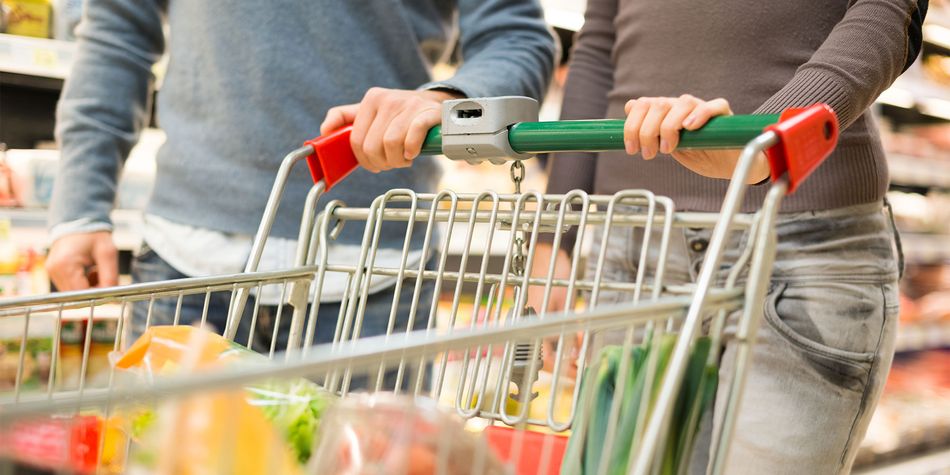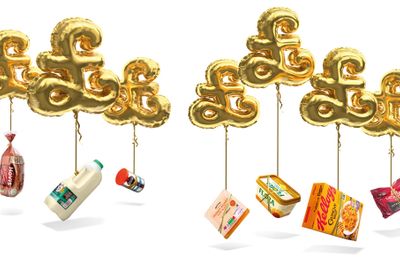By clicking a retailer link you consent to third-party cookies that track your onward journey. This enables W? to receive an affiliate commission if you make a purchase, which supports our mission to be the UK's consumer champion.
Sainsbury's is priciest supermarket for a big shop

Sainsbury's is the priciest supermarket for a big shop if you don't use a loyalty card, according to the latest monthly analysis from Which?.
Sainsbury's overtook Waitrose for the first time in our monthly analysis, which we've been running for years, becoming the most expensive supermarket to buy a trolley full of groceries from.
Asda remained the cheapest non-discounter supermarket, at a hefty £33.52 cheaper than Sainsbury's.
We also compared the price of a basket of 39 items. Here, Aldi was cheapest, with a total average cost of £67.72.
Most expensive supermarket for a trolley of groceries
Every day in September, we compared the cost of a large trolley of 131 items. This included branded items, such as Andrex toilet paper and Cathedral City cheese, as well as own-label groceries. Because branded groceries aren't always available in discounter supermarkets, we couldn't include Aldi or Lidl in this comparison.

Asda cost the least as the cheapest 'traditional' supermarket. It cost £325.71, on average, for our big trolley shop, beating next-cheapest Morrisons (£332.22) by £6.51.
Sainsbury's was £33.52 more expensive than Asda, coming in at £359.23 for the same trolley of comparable goods - this is the first time it has overtaken Waitrose to come out as the most expensive.
It's worth noting that our analysis includes discounts that are available to everyone, but not loyalty prices (where you need to be a member of the supermarket's loyalty scheme to get the discount) or multibuy offers.
- Find out more: Which? uncovers dodgy-looking supermarket loyalty discounts
Cheapest supermarket for a basket of groceries
Some 39 of these popular groceries, including Heinz baked beans, milk and bread, were also available at Aldi and Lidl, so we ran a smaller basket comparison including these two discounters to see how they compared.
The chart below shows how much our basket cost on average:

Aldi was the cheapest overall, with our shop costing £67.72, beating rival discounter Lidl by just £1.24. This is the 16th month in a row that Aldi has been the cheapest supermarket.
The same shop at Waitrose was £84.37 on average, making it £16.65 – or 24.6% – more expensive than Aldi.
In this smaller basket analysis, Sainsbury's sat in the middle of the table, coming in fifth-cheapest or fourth-priciest. Of the 'big four' supermarkets, Asda was the cheapest, at £75.42.
Of course, price is just one factor when you're deciding which supermarket to shop at. We also survey shoppers on product quality, customer service, store experience, online deliveries and a range of other factors, to reveal the best and worst supermarkets each year.
- Find out more: how to spend less at the supermarket
How Which? compares supermarket prices
We look at the prices of hundreds of grocery items at eight major supermarkets every day throughout the year, using an independent price comparison website.
At each supermarket, we work out the average price for each item across the month; then, we add them up to get an average trolley price. To keep things fair, we include special offers, but we don’t count multibuys or loyalty scheme discounts.
Our shopping list includes branded items such as Heinz baked beans and Dolmio sauce, as well as own-brand products like apples and lettuce. Own-brand items won’t be identical across supermarkets, but we’ve used experts to ensure everything we’ve compared is as similar as possible based on a number of factors, including quality and weight.
- Find out more: supermarket price comparison over time
What's happening to grocery prices?
Every month our food and drink inflation tracker checks the prices of about 25,000 food and drink products at eight of the UK's biggest supermarkets to see how they are changing.
Annual inflation for the supermarket groceries in our tracker dipped slightly again to 13.8% in the three months to 31 August 2023 (down from its peak of 17% in the three months to the end of April and also down from the previous month's figure of 15.3%). It was 12.5% in the one month to 31 August 2023 (down from 13.8% the previous month).
Lidl had the highest levels of inflation – up 15.1% for the month of August, year on year. This was followed by Aldi at 14.6%.
And biscuits are still the fastest rising in price of all 20 categories in our research. Yogurts, chocolate and crisps are also among the worst-hit categories.
Campaign update: supermarkets must do more
Our research shows that staple foods including rice, spaghetti, baked beans and tea bags are among the items that could cost more than three times as much if budget-range versions are not available and shoppers have no choice but to buy standard own-brand alternatives instead.
That's why we're calling on supermarkets to ensure more essential value range items are stocked in convenience stores.
Some supermarkets have taken steps to help customers. Morrisons has started to stock 10 budget range items in some of its Daily stores and has said up to 30 more will follow in as many as 500 stores.
Tesco has vowed to swap branded goods with cheaper branded or own brand alternatives in Express stores but should go further by stocking its cheapest budget ranges.
Despite the huge support this could bring to their customers during the cost of living crisis, Sainsbury’s and Asda have so far failed to announce that they are making any significant changes in their convenience stores when it comes to stocking more affordable foods.
- Do you want to see your supermarket take action to support people through the cost of living crisis? Sign our Affordable Food for All petition




